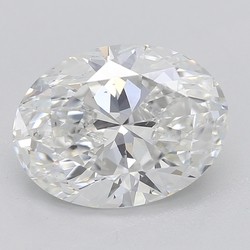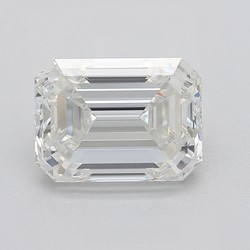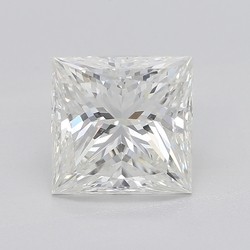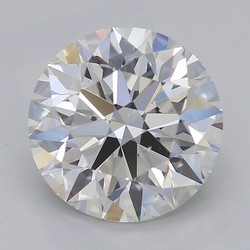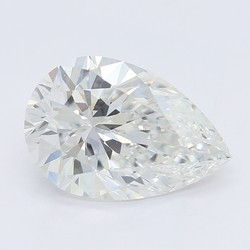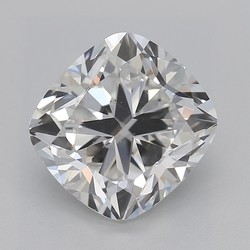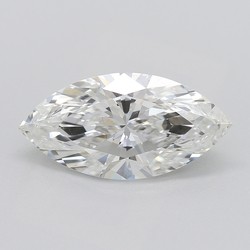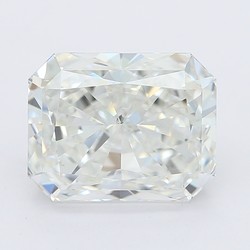Ethical Diamonds: 10 Questions You’ll Want Answered Before You Buy
Key Takeaways
- For a diamond to be considered ethical, it must have been mined in an environment that protects, rather than exploits, its workers – and the surrounding environment.
- In the past, a number of countries – particularly certain African countries – have experienced a lot of instability in their diamond industries, which has, unfortunately, harmed many artisanal miners.
- These days, things have changed dramatically. Ethical diamonds represent the majority, and are not hard to find.
- Working with the right jeweler is essential, as is doing your own research into the subject.
- Conflict free diamonds are those that have been mined in countries that adhere to the requirements of the Kimberley Process, but to be considered ethical, diamonds also need to have been mined in safe and non-exploitative environments.
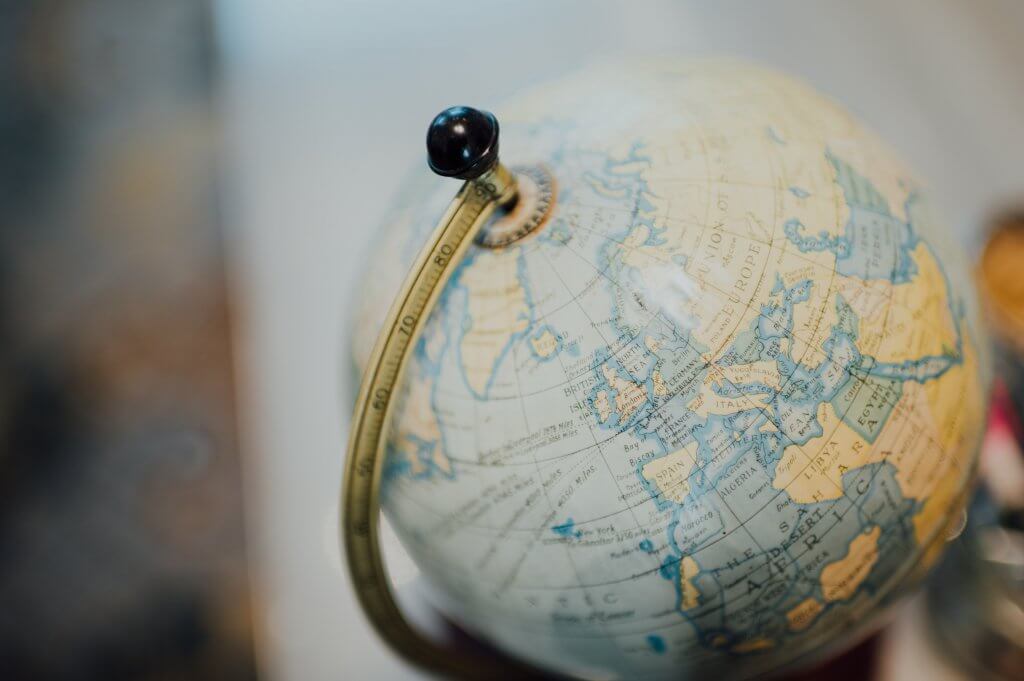
It’s no secret that, over the years, some parts of the diamond industry have been driven by greed, rather than any sense of social responsibility – or, for that matter, sustainability. Bringing a diamond into the light of day isn’t easy; it’s a labor-intensive process that all too easily benefits a small number of people at the top, rather than every individual involved in the creation of even a single piece of diamond jewelry.
Thankfully, times are changing. Ethical practices are growing increasingly prevalent around the world, and more and more jewelers and diamond sellers are committing to conflict free diamonds.
Still, the overwhelming majority of first-time diamond buyers – if not all – come into the process pretty preoccupied by the ‘dark side’ of the industry, and eager not to invest into a stone that carries the weight of so much suffering and pain along with it. But, unless you’ve got some experience in the world of diamonds, actually knowing how to recognise a genuinely ethical diamond can be tricky.
For that reason, here are ten questions every shopper needs answered before they step out and invest in a diamond.
What is an Ethically Sourced Diamond?
That is has been sourced from a mine that adheres to a very strict code of conduct for the treatment of its workers, the environment, and for the safety levels found at every stage in the process.
More so than any other continent, a significant portion of diamonds are mined from Africa, where rates of poverty are, at times, so high that it is all too easy for workers to be taken advantage of, and paid a shockingly low rate of pay for their work, which is strenuous and, without the right measures in place, incredibly dangerous. Worse still, many of these laborers are children – children who are unable to attend school, and who are forced to endure horrendous treatment from those who are only driven by greed.
Without proper regulation, conditions can quickly lead to injury and disease. Many diamonds are found in riverbeds, which means workers have to spend hours searching through stagnant water – a major hazard for water-borne illnesses, insects carrying other diseases like malaria, and a wide range of possible contaminants.
Unregulated mining operations are also subject to extreme violence, borne of rivalry for control of areas. The miners are often the innocent casualties of this violence, alongside the environment, which is harmed by the speed and urgency with which mining areas are excavated.
Ethically sourced diamonds are those that have not been brought to the earth’s surface by someone – perhaps a child – suffering through this unspeakable conditions. They are stones that have been mined by a trained, unionized, adult worker who is paid a fair wage.
The environment is also protected, and not simply left to repair itself after the mining potential has been exhausted in a certain area – or, worse still, continue to play host to the horrors of a civil war funded by blood diamonds and unethical practices.
Why the Term ‘Conflict Free’ Doesn’t Cover Everything
Diamonds are not only incredibly lucrative items to produce and export, but they’re also powerful tools for rebellion and civil war, offering a high level of funding to rebel groups and armed forces looking to undermine governments.
The importance of conflict-free diamonds cannot be overstated. And, thanks to the United States uncompromising approach to adhering to the United Nations’ standards, conflict free diamonds represent an easy minority within the country. You can – and should – read our guide to conflict free diamonds here, but you also need to understand what the phrase ‘conflict free’, even when used totally legitimately, doesn’t cover.
The conflicts that are spurred on by the illegal sale and trade of blood diamonds have a marked impact on artisanal miners working meet demands for rough diamonds, but, even if violence and rebellion were wiped from the picture tomorrow, unregulated mines would still be capable of exposing their workers to horrendous conditions.
Why? Because diamonds hold an incredibly high value on the worldwide market regardless of their value for rebels and civil war. It is a sad fact of life that there will always be people willing to exploit vulnerable people in order to reap the largest financial gain possible.
Diamond mining takes place in remote locations and, unless the importer is doing their due diligence, it is all too easy for exporters to claim that they are protecting and supporting the welfare of their artisanal miners without actually doing so.
What’s more, another factor that is not automatically erased by conflict-free diamonds is the environmental impact of diamond mining. While many processes still need to be completed by the hands of the artisanal miners, they also rely on some pretty significant machinery to get them started.
Can Diamonds be Ethically Sourced?
It is possible, but it’s not as easy as it might sound, and shoppers need to be aware of the hollow promises some unscrupulous sellers will make about the ethicality of their diamonds.
With so many shoppers now aware, if only peripherally, of the terrible treatment unregulated workers are subjected to, the demand for ethical diamond and conflict free diamonds is high. No one wants to propose to their partner with a diamond that comes from a situation of pure greed and inhuman suffering. Shoppers who were enlightened by Leonardo DiCaprio’s 2006 movie Blood Diamond, for instance – or the documentary of the same name – pose a mounting issue to unregulated mine, since knowledge of those conditions has the power to erase even the most beautiful diamond of all its appeal.
The trouble is that, as demand for conflict free diamonds continues to grow, so too does the appeal of ‘rewriting’ the history of unethical diamonds in order to ensure that they appeal to the biggest demographic possible. In other words, if buyers want conflict free diamonds, corrupt sellers will simply attempt to present their diamonds as conflict free. On sight alone, there is no way of knowing a diamond’s history, after all.
Ethical practices have been instated all around the world, thanks to a number of organizations we’ll look at in more detail below. These organizations are working hard to ensure that the diamond industry, like so many others that feature a long pipeline, is actively working to support everyone it relies upon, rather than growing complacent or ‘blind’ to the trouble.
What are Ethically Sourced Diamonds Called?
There is no specific name for ethically sourced diamonds, but there are ways for you to comprehend to ensure that you’re supporting safe and sustainable practices, rather than terrible conditions and treatment.
There are a wide range of non-profit organizations and incentives working tirelessly to improve the global trade of diamonds and, below, we look at two of the most significant:
The Kimberley Process
The matter is one that escalated to the level of the United Nations General Assembly, who founded an international certification scheme known as the Kimberley Process. This process outlines a minimum code of conduct for member nations, with a view to ensuring that the sale of rough diamonds is no longer being used to fund the dangerous conflicts that gave rise to the term ‘blood diamonds’.
All major producers, exporters, and importers of rough diamonds (diamonds that have been mined, but not yet cut or made consumer-ready) have signed onto the Kimberley Process, with a total of 83 countries – including every member of the European Union. Together, they account for more than 99% of the world’s production and, by willingly offering critical statistical data on production, imports, and exports, make themselves available for the level of scrutiny the diamond world needs in order to remain above board.
Countries who have signed onto the Kimberley Process are regularly audited, and attempts at providing fake certificates are tracked closely by members. In 2019, the total value of diamonds trading under the Kimberley Process Certification Scheme was $13,574,417,964.86.
Diamonds Do Good
Ethical diamonds still rely on artisanal miners – human workers operating in areas that, historically, having proven the most ‘at risk’ for unsafe, unfair, and unethical operations.
While part of the key to transforming the diamond industry lies in the significant efforts made by members of the Kimberley Process and other national programs that establish better standards for workers, the other lies in groundwork – a concerted effort to empower those whose work proves most vital to the diamond industry.
Their work centers on the ‘fifth C’, Community, and the work required to ensure that the diamond world features plenty of opportunities for economic development, proper education, environmental protection – even those most basic necessities like access to healthcare and reliable sources of clean water.
From some of the most renowned jewelers in the world, such as de Beers, to independent jewelry stores, Diamonds Do Good receives a massive amount of support from those who want to see the industry become a global community.
Are Ethical Diamonds Lab Grown?
Lab grown diamonds are ethically sourced, but they’re not the only option for shoppers looking for diamonds not burdened by unethical or unsafe histories.
Unlike natural diamonds, lab grown diamonds can be grown anywhere in the world. The pipeline is, as a result, much, much shorter – and, as you would expect, does not risk the health and wellbeing of men, women, and children in some of the most vulnerable communities on earth.
Many shoppers are reluctant to invest in lab grown diamonds for obvious reasons. A natural, earth-created diamond’s history stems billions of years into the past, and its endurance, strength and unlikely beauty represent a major part of their appeal – particularly for romantic pieces, like engagement rings. Taking that away is a dealbreaker for many shoppers – as is the unpredictable long term value of lab grown diamonds vs their valuable counterparts.
Sure, when you compare these pointers with the suffering experienced at unregulated mining areas, they mean nothing, and should have driven the entire diamond world toward lab grown alternatives years ago. However, with so many countries pursuing ethical practices and better standards for
Are Ethically Sourced Diamonds More Expensive?
Not necessarily. Those who consider themselves true proponents of ethical diamonds do not want to make them an unattainable or undesirable choice for consumers.
Diamonds mined from certain parts of the world, like Canada, are generally more expensive than those mined in other countries, but the price difference isn’t so significant that you have to give up on buying a real, earth-created diamond for your partner.
A large part of the work undertaken by Diamonds Do Good is intended to ensure that the diamond industry brings more benefits that negatives to the communities involved in that most pivotal step in the process: mining. This doesn’t need to mean that the cost of ethical diamonds skyrockets on the global market in order to ‘compensate’ for the greater financial investments exporters need to make into their workers.
And, if the price of an unethical diamond is significantly lower than an otherwise comparable ethical diamond, then this is likely driven by the fact that more and more buyers are taking additional steps to ensure that they don’t support unethical practices. As with blood diamonds, consumers are growing increasingly aware of how important it is to avoid unethically sourced diamonds, and sellers are having to find new ways of encouraging buyers toward them.
How Can You Tell if a Diamond is Ethically Sourced?
Since it is impossible to know a diamonds history on sight alone, the most important thing for any shopper is that they feel confident they can trust the vendor showing it to them.
Transparency is something that reputable businesses embrace with open arms, whether they are involved in the jewelry, coffee, chocolate, or textiles industry – or any other, for that matter. What’s more, a reputable jeweler will go to the lengths needed to understand every step involved in their own pipeline, from the mine to their own table.
Combined, these two factors mean that a reputable jeweler will be one that understands where their diamonds come from, who mined them, and what sort of conditions they face on returning to work each day.
Are GIA Certified Diamonds Ethically Sourced?
Not necessarily, and this is something that buyers need to be keenly aware of throughout the process of finding and buying a diamond.
The GIA is very strict about the types of rough diamonds it accepts, but it cannot exercise the same control over the cut diamonds that are sent into its labs for grading.
While a GIA report is the strongest guarantee you can get that your diamond is of the quality and value the seller is advertising, it is not the strongest guarantee you have that the person selling it has gone to the efforts needed to ensure ethicality and sustainability in their sourcing.
The GIA’s purpose is primarily to ensure the ethical treatment of consumers looking to invest in diamonds. Before their introduction onto the scene, it was incredibly difficult for shoppers to find anywhere near the same level of transparency and honesty they can find now, and, as a result, plenty of people were overcharged on low quality diamonds.
In more recent years, they have begun to develop their approach to tracing the ethicality of diamonds through their diamond origin reports. As with everything the GIA does, the process of completing one of these reports is heavily grounded within scientific data and research in order to offer the highest level of reliability possible to shoppers. It requires that the diamond is graded as a rough stone, and again after it has been cut.
Buying a diamond that features an Origin Report is not the only way to ensure an ethical purchase, however. Individual jewelers have their own ways of tracking the pipeline through which they source their diamonds, and being able to put your full trust into your jeweler will prove invaluable to you.
Is it Ethical to Buy Diamonds?
It can be, but only if you do your due diligence as a consumer.
This isn’t something that is exclusive to the diamond industry. Food and clothing – even electronics and toys – are all easily exploited by the wrong people and, as a result, those who work at the very beginning of the pipeline are the ones who suffer the most.
The global diamond industry has invested a lot of resources into turning things around, and so much progress has been made already. The consumer side is filled with sellers who do their own due diligence and, at the same time, to educate customers on the ongoing risk of inadvertently investing into diamonds that come from operations and areas that still need to undergo major changes before they can be considered ethical.
As always, however, this can only work if you – and every other shopper – turns to these reputable sellers in the first place. It’s the only way to ensure that you’re not going to walk away with a diamond that represents human and environmental suffering.
For some people, the solution is to turn their back on the world of natural diamonds entirely. It’s understandable, but it’s not necessary. Supporting an ethical pipeline – one that runs from your jeweler’s table to a regulated mine in a country that actively works against blood diamond practices, environmental destruction, child labor and wage exploitation – means supporting the artisanal miners who are now able to make a living doing what they do.
In other words, investing into the positive side of the industry means reaffirming that line that is continuously being drawn between equality and inequality, safety, and endangerment, what’s acceptable and what is totally unacceptable.
Is the Diamond Industry Unethical?
Parts of the diamond industry have a long way to go before they could be considered ethical, but a massive amount of progress has been made to ensure that a significant portion of the diamonds available to consumers are worthy of being called ‘ethical’.
Once you start to do your research into the subject, there’s no way of sugarcoating it: there are people out there who will unwittingly invest in unethical diamonds, mined without sufficient regard for the environment or, worse still, the people whose job it is to bring them into the light of day. A diamond doesn’t carry any markers or branding that confirms it as ‘unethical’ and, for that reason alone, it is up to the buyer to work out whether or not they can trust the person selling it to them.
A daunting task – particularly for someone who is attempting to find the most romantic and special gift possible for their partner. No one wants to support the dark side of an industry, or to carry a part of it with them.
This is why choosing a jeweler you can trust – one who prioritizes transparency and sustainability over buzzwords that draw in unsuspecting shoppers – is the most important thing you can do as a shopper, alongside doing your research.
You don’t need to trace your diamond all the way back to the mine from which it was taken to know that it has been handled only by people who are treated fairly, and given the proper opportunities to make a living. This is a job willingly undertaken by a reputable jeweler.
You can read our full guide to finding an ethical engagement ring here.
As a result, your main job is to find that reputable jeweler, to understand their approach to the ethicality of every diamond they bring through their doors, and to invest your money into the positive side of a global industry.
At WillYou.Net, our commitment to ensuring transparency for shoppers throughout the entire process of buying a diamond means that we will only recommend the most reputable jewelry stores in your area – stores we have personally done business with ourselves. You can use our Jewelry Store Locator, then browse their full range of non-conflict diamonds before booking your consultation to talk about every aspect of your engagement ring – including the origins of your diamonds.

Mar 17, 2022 By Willyou.net
The Kimberley Process, Blood Diamonds, and Why We Should Avoid Them

Dec 25, 2021 By Willyou.net
Eco-friendly diamonds: The perfect blend of beauty and sustainability

